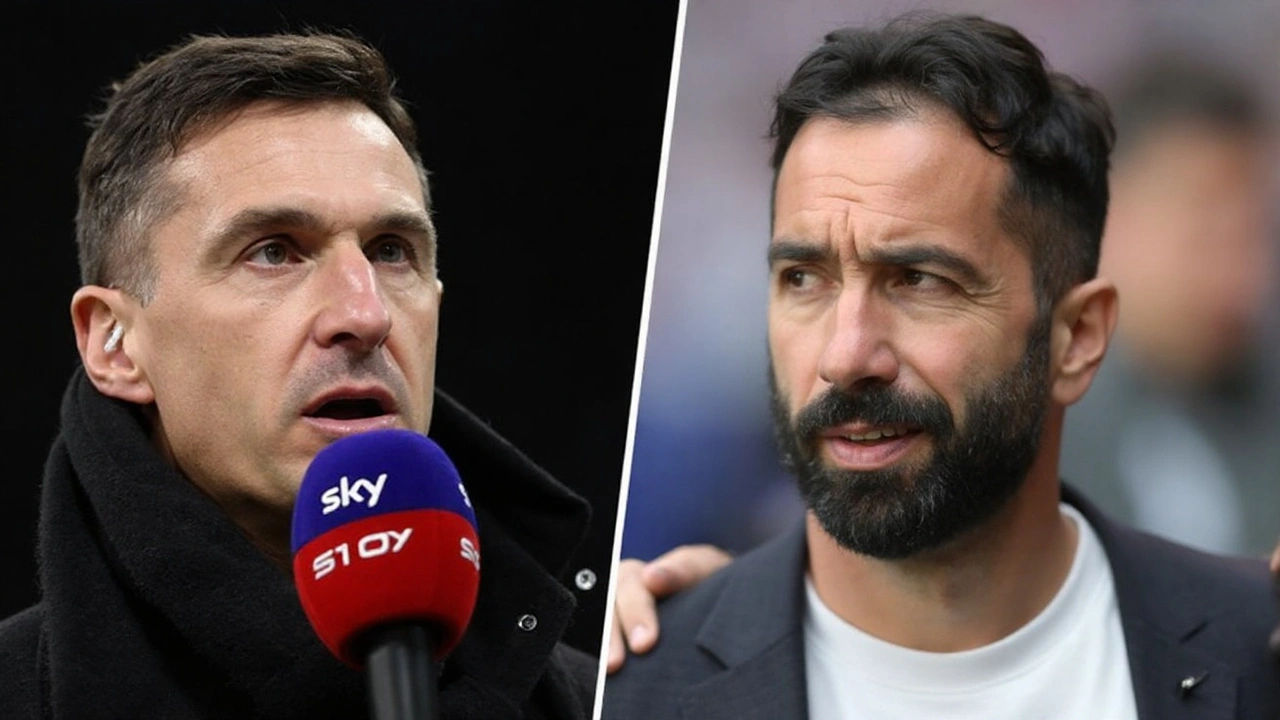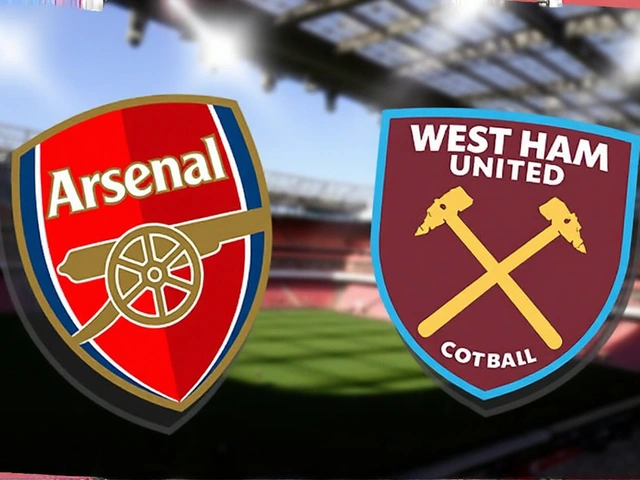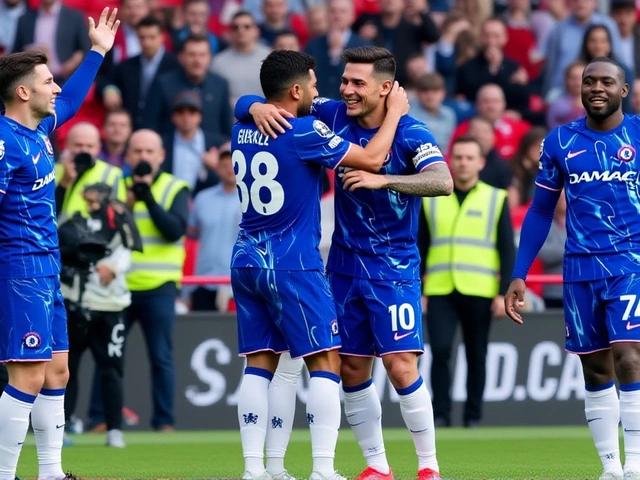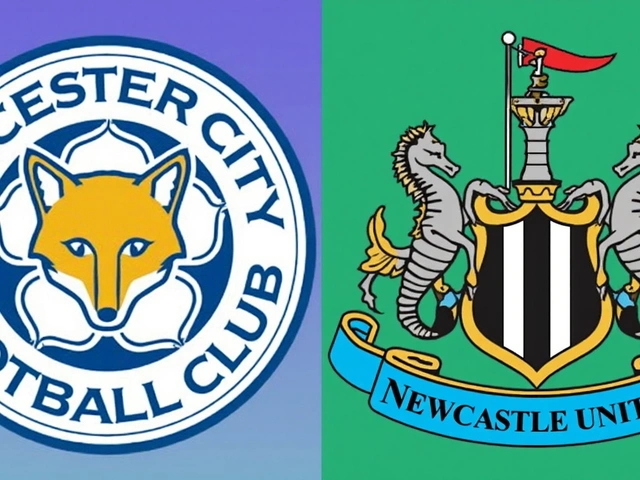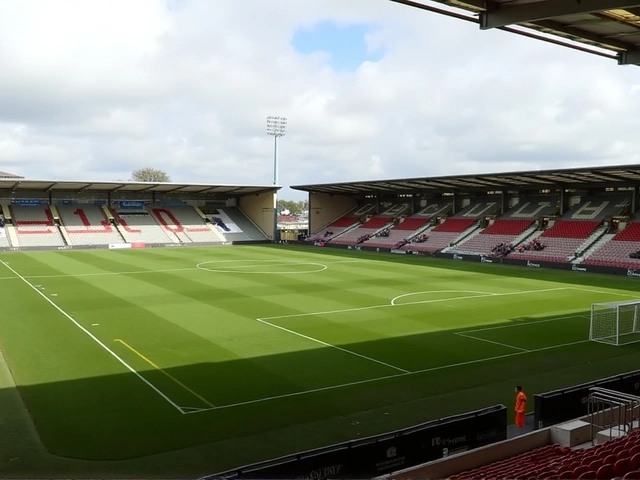A 29-game marker that tells a bigger story
Here’s the blunt reality: after 29 Premier League matches in charge, Ruben Amorim has managed more games than points. For a club that once measured itself by titles, that single stat sums up where the project is right now. The win column shows seven. The win rate sits at 24.1%. And the mood around Old Trafford feels brittle.
The latest chapter came in a 1-1 draw at Fulham, a match that showed the same old pattern. United had control in spells, created the big moment, then let it slip. Bruno Fernandes skied a penalty after VAR spotted a foul on Mason Mount. The breakthrough, when it finally arrived, was accidental: Leny Yoro’s header ricocheted in off Rodrigo Muniz. Instead of pushing for a second, United sank deeper and invited trouble. Emile Smith Rowe, on as a substitute, ghosted into space to meet Alex Iwobi’s cross and level late on. Two points gone, familiar questions back on the table.
The backdrop makes it sting more. The summer spend cleared £200 million on Matheus Cunha, Bryan Mbeumo, and Benjamin Sesko, but the front line still feels short of conviction. Sesko has barely featured, Mbeumo has been shuffled between touchline and half-spaces, and Cunha’s link play hasn’t yet translated into consistent end product. The moves were meant to speed up the rebuild. On the pitch, it still looks like a work in early drafts.
Amorim’s tenure opened with hope, even a little swing. Appointed on November 1, 2024, he began officially ten days later, drew 1-1 at Ipswich, and found quick wins in Europe against Bodø/Glimt and in the league with a 4-0 over Everton. Then the slide. United’s form flattened through winter, and the edges frayed. After a 3-1 home defeat to Brighton in January, Amorim called his players ‘probably the worst team in the history’ of the club, a phrase that echoed longer than he intended. Results didn’t challenge the verdict. The league run-in produced just four points from the last six matches. The Europa League became a lifeline. Tottenham took even that, 1-0 in the final—the fourth defeat to Spurs that season.
With no trophies and no European qualification, the campaign ended heavy and raw. The table locked them in the bottom half; 15th-place lingered like a bruise through summer. This season has started winless in the league and short on belief. The cutting line on social media—‘even Gary Neville is better’—isn’t analysis, but it captures the mood: derision has replaced doubt.
There’s also a grim echo in Amorim’s 24.1% Premier League win rate. It mirrors Neil Warnock’s top-flight number from another era, a comparison that does not flatter a big-club manager. Context matters—fixtures, injuries, squad churn—but the top line is too stark to hide. The table has no footnotes.
Why it looks this way—and where it goes next
United’s issues are layered, and most of them show up in game-state moments. When they score first, they don’t press the advantage. When they chase a goal, they run out of structure. Most weeks, transitions decide everything. The space behind the full-backs opens up, the defensive midfield gets dragged across the pitch, and the centre-backs end up defending big zones with little cover. That’s how you concede late crosses and back-post runs like Smith Rowe’s equaliser at Craven Cottage.
In possession, the shapes have felt awkward. Bruno and Mount often occupy similar lanes, so the ball cycles without piercing the box. Crosses come from static positions. Runners arrive late. That’s why the numbers look tepid without needing to cite them—few clean looks, lots of blocked shots, and not enough passes slipped through the last line. When United do get into the area, the final decision takes too long, or the cut-back finds no one.
Recruitment hasn’t yet synced with the manager’s ideas. Mbeumo thrives when he attacks the inside-right channel, drifting onto his left foot with a runner pinning the line; at United he’s been asked to stretch wide and recycle. Cunha wants to roam between lines and drag markers, but the team doesn’t always fill the spaces he frees up. Sesko was meant to be the direct outlet, the vertical threat that keeps backlines honest. If he’s not on the pitch, defenders step up, and United end up playing in front of teams instead of through them.
The set-piece record has added pressure. Corners and wide free-kicks have cost them, and it isn’t just about first contact. The second balls drop to opponents too often because the marking line is flat, and the rebound zone is unmanned. It looks small but it matters—when a team struggles to create, giving away cheap goals from dead balls is a backbreaker.
Psychology is in the mix, too. Players look tense at 0-0 and panicked at 1-0. That shows up in touches—an extra look, a safe pass, a pull-back when the shot is on. You don’t fix that with slogans. You fix it with repetition, clear roles, and a plan you stick with under stress. The benchmark for Amorim is simple: a settled XI, tighter distances between the lines, and game management that doesn’t flip from front-foot to bunker the moment United lead.
It would help to rediscover a predictable route to goal. Right now, the attack feels improvised. One practical tweak: pair a fixed reference up top with a consistent underlap pattern on one side. If Sesko starts, give him two feeders—one wide, one central—and keep the box occupied. If Cunha plays as the nine, lock the wingers high and invert one full-back to flood zone 14. The idea isn’t to reinvent; it’s to repeat until it becomes muscle memory.
Personnel decisions are looming. Sesko’s minutes have to either climb or be explained. Mbeumo needs a run in his best lane, not a new role every week. Mount and Bruno may need staggering across lines so they don’t step on each other’s toes. And if the midfield anchor is chasing runners into the channels, the press is broken before it starts. Those are solvable problems, but not if the selection changes twice a week.
Amorim’s own words still hang in the air. Calling his players the club’s ‘worst team’ was raw, and it read as frustration rather than strategy. Since then, the dressing room exists in a fragile place: trying to prove the manager wrong while relying on him for stability. His contract runs to 2027, but the runway only extends as far as the next run of games. The board’s dilemma is familiar—back the plan through turbulence, or cut it before the slide becomes a spiral.
There are green shoots if United choose consistency. The centre-backs can play through pressure; there’s pace in wide areas; and when the first pass out of defence is clean, the team moves up the pitch quickly. But the basics have to firm up: the rest defence must be set before full-backs push; the nearest midfielder must screen transitions; and the press needs a first trigger everyone trusts. That alone could flip tight draws into narrow wins.
The Fulham draw doubled as a checklist. Missed big chance? Check. Thin lead? Check. Late concession from a wide delivery? Check. United didn’t lose, but the film looked too familiar. Strip out the drama and you’re left with patterns: control without incision, leads without insurance, pressure without traps. Fix one of those and the numbers soften. Fix two and the table moves.
Comparisons to previous eras won’t help. This is a team caught between ideas and identity, carrying the weight of a bottom-half finish and the sting of a lost European final. A 29-game stretch with fewer points than matches is rare at this level for a club of this size, and it does not happen by accident. It comes from layers of small errors stacked week after week.
So what next? In the short term, clarity beats overhaul. Name a spine, commit to a lane for Mbeumo, decide on the nine, and live with it for a month. Lean into set-piece routines for cheap goals. Protect the box late by keeping one winger deep when ahead. And yes, take the next penalty with calm; the season can pivot on moments like Bruno’s at Craven Cottage.
The wider picture is harder. The transfer bill won’t matter if the roles stay fuzzy and the distances remain loose. The good news is that structure can be taught fast when the message is simple. The bad news is that the fixture list won’t wait. The stat that opened this story won’t go away on its own. It will either become the platform for a turn—or the line that defines Amorim’s time at Manchester United.

